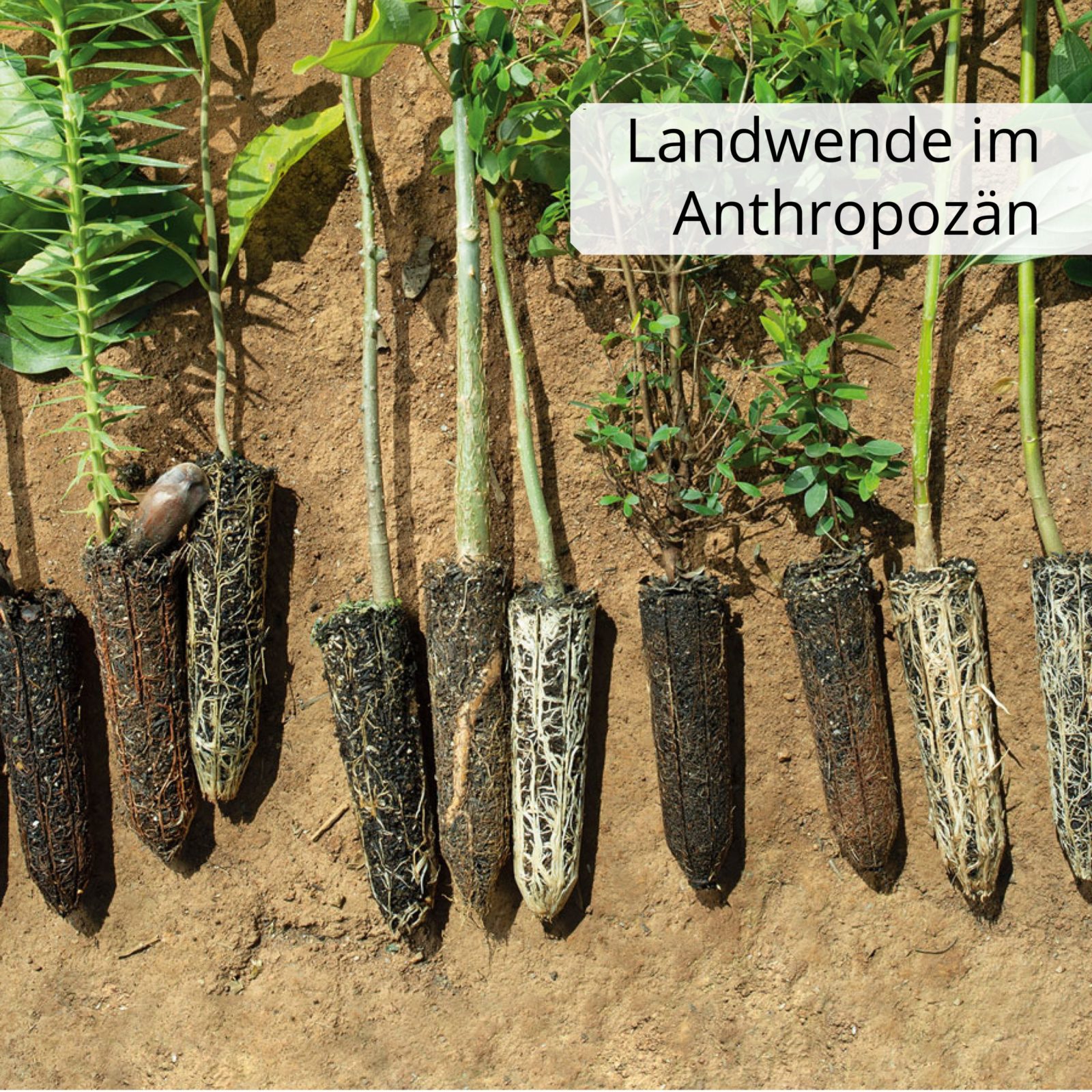[et_pb_post_title title="off" meta="off" featured_image="off" admin_label="Land Turn in the Anthropocene
" _builder_version="4.6.6″ z_index_tablet="500″][et_pb_text admin_label="Land Turn in the Anthropocene
" _builder_version="4.7.7″ module_alignment="left" custom_padding="||0px||" hover_enabled="0″ z_index_tablet="500″ box_shadow_horizontal_tablet="0px" box_shadow_vertical_tablet="0px" box_shadow_blur_tablet="40px" box_shadow_spread_tablet="0px" sticky_enabled="0″]
Land Turnaround in the Anthropocene
The German Advisory Council on Global Change (WBGU) handed over its new report "Land Transition in the Anthropocene: From Competition to Integration" to the Federal Ministers Anja Karliczek (Education and Research) and Svenja Schulze (Environment) at the beginning of November 2020. The final version will be published in 2021.
The report is prompted by the current disturbing developments: The world's terrestrial ecosystems are in crisis. The balance sheet of international sustainability policy at the beginning of the 2020s is sobering. The goals of the Paris Climate Agreement seem to be achievable only with increased risk. The global food system is in crisis. For a quarter of the world's population, food security is at risk, and another quarter suffers from overconsumption that is harmful to health. The externalities of industrial agriculture threaten natural livelihoods and contribute to the loss of biodiversity. While multilateral cooperation is in deep crisis, the situation is further complicated by the Covid 19 pandemic. The scarcity of the common good of land and the confluence of conflicts over terrestrial ecosystems that are no longer sustainable call for urgent action.
This results in the central message of the land turnaround, that only by fundamentally changing the way we deal with land can climate protection succeed, biodiversity loss be averted and the global food system be made sustainable.
The WGBU recommends five multi-gain strategies for sustainable land management to overcome competing land use claims, covering the topics of renaturation, ecosystem protection, agriculture, food and bioeconomy:
1.massively expand the renaturation of terrestrial ecosystems.
As part of the Bonn Challenge, an initiative by Germany and the World Conservation Union to restore forests and wooded landscapes worldwide, the goal of restoring 350 million hectares of degraded land by 2030 should not only be achieved, but significantly expanded. The restoration of biodiverse and site-appropriate forests, wetlands and grasslands will at the same time create additional benefits by removing CO2 from the atmosphere. The necessary massive reduction of CO2 emissions must also be pursued independently of this.
2. expand and enhance effective, interconnected protected area systems.
Terrestrial protected area systems should be expanded to cover 30% of the Earth's surface, with consistent application of internationally agreed quality criteria. This should alleviate the global biodiversity crisis. It also contributes to climate protection in the sense of added value and preserves long-term potential for food security.
3.promote diversity-based agriculture.
For the EU's agricultural policy, the WBGU recommends turning away from industrial agriculture through its comprehensive greening. This will simultaneously promote food security, climate protection and the conservation of biodiversity.
4.Transformation of eating styles in industrialised countries.
The pressure on terrestrial ecosystems should be alleviated in particular by reducing the share of animal products. An orientation towards the "Planetary Health Diet" should be anchored as a principle in nutrition guidelines and also recommended by the federal government.
5.building with wood
Building with wood creates effective opportunities to store carbon in the long term. It must be ensured that the wood comes from sustainable forestry appropriate to the location, which does not endanger biodiversity or food security. To this end, a global "sustainable building mission" should be initiated with international partners and linked to the EU initiative for a "new European Bauhaus".
To implement the global land transition, the five value-added strategies developed are to be driven by the following five governance strategies:
1. support pioneers of change to test new land-based conservation and use practices.
2. design of governmental framework conditions for the solidarity-based use of land
3. testing the land turnaround in the European Union
4. improve international cooperation in dealing with land and convene a "Global Land Summit" as a joint conference of the parties to the UN conventions on climate, biodiversity and desertification.
5. establishment of cooperative communities by like-minded states and/or sub-national regions.
More information and the full report are available at:
- https://www.wbgu.de/de/service/presseerklaerung/pe-landwende
- https://www.wbgu.de/de/publikationen/publikation/landwende
#mullandpartner #engineeringforabettertomorrow #whatwedo #news
Our business areas
Environmental and geotechnical engineering
Construction and project management
Renewable energies
Real estate development
Infrastructure
Water management
Our companies
M&P Engineering Company
M&P Engineering Company Munich
T&P Beratende Ingenieure
P&P Real Estate Consulting
P&B Real Estate Management
P&M Project Management
M&P Umwelttechnik
Please contact us
Follow us on

